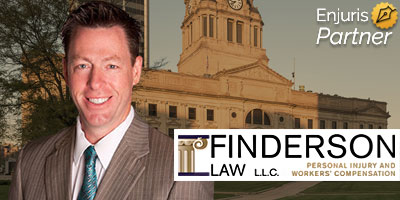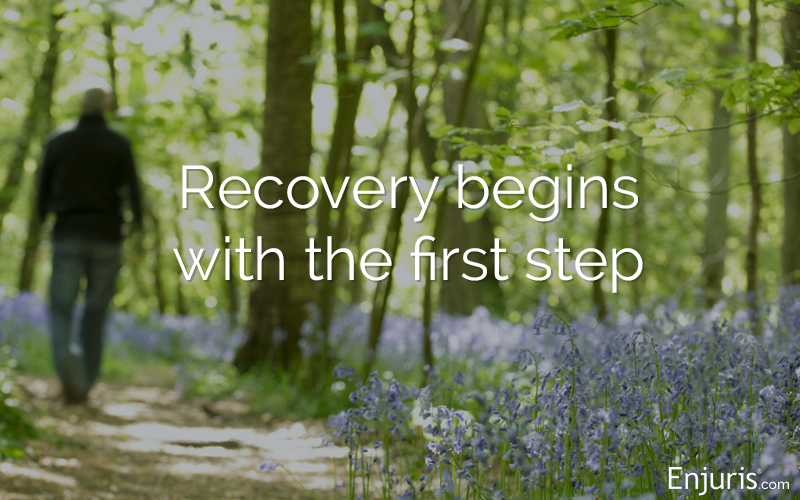How to recover personal injury damages after a head or traumatic brain injury
Your brain is the most complex and important organ in your body.
Although your skull, which consists of 28 bones and weighs 2.5 pounds, is sufficient to protect your brain from most minor bumps and blows, it’s not strong enough to protect your brain from more significant impacts.
The most serious type of head injury is a traumatic brain injury (TBI), which the Centers for Disease Control and Prevention (CDC) defines as a “disruption in the normal function of the brain that can be caused by a mechanical, penetrating, or concussive force.”
Head and brain injuries can be financially and emotionally devastating. Fortunately, there are legal options available to Hoosiers that may help.
How common are head and brain injuries?
Head injuries range from minor bumps and bruises to severe TBI. Minor bumps and bruises don’t usually require a trip to the hospital, but TBI admissions are well documented.
Roughly 3 million people are treated every year in the United States for concussions (a mild form of TBI). The majority of these concussions are sports-related, and roughly 300,000 are football-related.
What’s more, concussions are believed to be underreported. The University of Pittsburgh Medical Center estimates that 5 out of every 10 concussions go unreported or undetected.
As for more severe brain injuries, the Indiana State Department of Health reports that more than 36,000 Hoosiers are hospitalized, and more than 620,000 visit emergency departments, because of TBI every year.
What’s more, TBI was listed as the primary cause of death in 1,239 Hoosier deaths in 2016. Of the TBI-related deaths in Indiana, 58% were caused by unintentional injury:
- 25% unintentional falls
- 23% motor vehicle collisions
- 9% other
- 1% struck by or against something
What are the symptoms of head and brain injuries?
Some of the most common symptoms of head and brain injuries include:
- Memory loss (unable to recall the cause of the injury or the 24 hours leading up to the injury)
- Difficulty remembering new information
- Confusion
- Headache
- Dizziness
- Blurry vision
- Nausea and vomiting
- Ringing in the ears
- Trouble speaking coherently
- Restlessness or trouble sleeping
The length and intensity of symptoms depend on whether the injury is mild, moderate, or severe. What’s more, the symptoms of a head or brain injury can appear at the time of the injury or soon after, but may not appear for days or even weeks.
Should I seek emergency care for a head or brain injury?
You may have suffered a serious brain injury even if you didn’t lose consciousness and your symptoms cleared up quickly. Because of this, the Alzheimer’s Association recommends that anyone who experiences any symptoms of a head or brain injury should seek medical attention.
You should seek emergency care if:
- You lose consciousness for more than a minute
- You experience seizures
- You experience repeated vomiting
- Your symptoms worsen
What legal options exist for recovering damages after a head or brain injury in Indiana?
If you’ve suffered a head or brain injury in Indiana, you may be able to recover damages to help ease the financial burden caused by your injury. Your legal options depend on the cause of the injury.
Head and brain injuries caused by negligence
If your head or brain injury is caused by another person’s carelessness, you may be able to recover damages by filing an insurance claim or a personal injury lawsuit based on negligence.
In Indiana, you must prove 3 elements to establish a successful negligence claim:
- Duty. You must prove that the other person owed you a duty of care.
- Breach. You must prove that the defendant breached the duty of care. In most cases, this means that the defendant failed to act as a reasonable person would have acted under the circumstances.
- Causation. You must prove that your injury was caused by the defendant’s breach. In other words, you wouldn’t have suffered the injury but for the actions of the defendant.
Common head or brain injury accidents that result in negligence claims include:
- Swimming pool accidents
- Youth sports accidents
- Football accidents
- Slip and falls
The lawsuit alleged that the section of trail located at the Franklin Street bridge was defectively designed because the section takes riders downhill through several blind curves and under a bridge without sufficient signage.
The bicyclist was diagnosed with TBI after he was involved in a head-on collision with another bicyclist as each bicyclist came around a blind curve under the bridge.
Head and brain injuries caused by an intentional tort
If someone intentionally caused your head or brain injury, you can seek damages in a civil lawsuit.
Head and injuries suffered at work
Every 7 seconds someone is injured at work. According to a recent study, almost 20% of these workplace injuries result in a TBI.
Common causes of work-related TBI include:
- Falls on slippery, cluttered, or unstable surfaces
- Fall from unsafely positioned ladders
- Being hit by a moving object
- Bumping against a fixed object
- Vehicle crashes
If you suffered a head or brain injury as a result of a workplace accident, you may be able to receive financial benefits by filing a workers’ compensation claim.
Almost all Indiana employers are required to carry workers’ compensation insurance, and almost all head and brain injuries are covered so long as the injury occurred during the course of employment.
What damages can be recovered after a head or brain injury in Indiana?
In any Indiana personal injury lawsuit, there are 3 types of damages you may be able to recover:
- Economic damages are damages that a court can calculate by reviewing records (medical expenses, lost wages, property damage, etc.).
- Noneconomic damages are damages that don’t have a specific monetary value (pain and suffering, emotional distress, loss of consortium, etc.).
- Punitive damages. Punitive damages are assessed by the court for the purpose of punishing the defendant and deterring similar behavior in the future. As a result, punitive damages are only awarded in cases where the defendant’s actions were grossly negligent or malicious.
What if I’m partially at fault for my accident?
Indiana is a modified comparative fault state, which means that your damages will be reduced by your percentage of fault. What’s more, if the court considers you more than 50% at fault for the accident, you’ll be barred from recovering ANY damages.
Are there any head or brain injury support resources in Indiana?
A strong support system is critical to recovery following a serious head or brain injury. Support groups can help reduce your anxiety, make you feel less alone, and help you develop strategies to deal with common recovery-related issues. Here are a few helpful resources:
- Brain Injury Association of Indiana
- Love Your Brain Foundation
- Indiana University Traumatic Brain Injury Model Systems Center
- Family Caregiver Alliance
- BrainLine: Personal stories and blogs by people with TBI
Do you want to speak to an attorney about your head or brain injury today? Use our free online directory to locate an experienced Indiana personal injury attorney near you.
See our guide Choosing a personal injury attorney.


